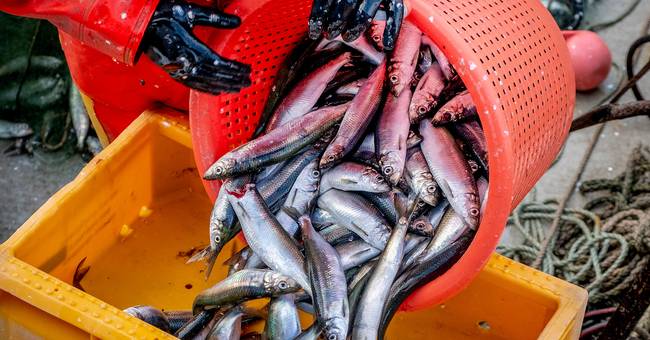The World Wide Fund for Nature WWF today releases its annual fish guide.
There, WWF divides the around 80 species in its guide into the categories green, yellow and red light according to how endangered they are.
Among the species for which the situation has deteriorated are herring / herring that are fished with nets or migratory trawls in the central Baltic Sea.
It goes from green to yellow light because the fishing pressure is high and it is uncertain how the herring fishing affects the cod's recovery.
In recent times, a lot of alarms have also come in regarding lean fish, so-called "grinding herrings".
- The herring also feels bad now, in addition to the cod that eats the herring.
It decreases in size and becomes sexually mature prematurely, says Inger Melander, expert in fishing and marketing at WWF.
Canned tuna is having a hard time
For those of you who often eat burkton, gloomy news awaits.
The tuna skipjack, which is found in canned tuna, feels worse in several sea areas.
Ship jackets from the Pacific and the Indian Ocean are already on the red light in the fish guide and now the situation is the same for ship jackets in the Atlantic.
- Several tuna species have felt bad for many years.
Efficient management has not been achieved.
There is a high proportion of juvenile fish and in many fish there is an impact on other species.
The Swedes eat so much fish
Swedes eat about 14 kilos of seafood per person per year, which corresponds to 1-2 fish meals per week.
Salmon, herring, cod and shrimp account for the largest share of consumption and salmon is the most popular.
As for that particular one, the situation looks unchanged, but it is not as reassuring as it sounds, says Inger Melander.
- It is worrying that we eat so much salmon.
Only a small proportion of salmon in Sweden comes from decent farms.
However, there are happier messages for some species.
For both mackerel in the North Atlantic and sprat on the West Coast, the situation looks better.
More of these two species are reaching playful age and both are now given the green light.
Even sardines that are fished with large nets in the Bay of Biscay now go from yellow to green light.
Criticism of the fish guide
But not everyone is convinced by the fish guide.
Over the years, it has been criticized by professional fishermen who, among other things, believe that WWF is too harsh in its assessment and does not take season into account.
- I see that the fish guide has less and less impact in the industry because it is complicated.
It is unclear to the consumer, says Peter Ronelöv Olsson, chairman of Sweden's fishermen's producer organization.
He then refers to the fact that the same species can be assigned different lights by the WWF depending on what water they live in, or how they are fished.
Peter Ronelöv Olsson also believes that the guide hits the fishing industry unnecessarily hard.
- We work hard to be sustainable and that the entire industry should be.
Sweden is a world leader in gentle and sustainable fishing, but it is not clear.

